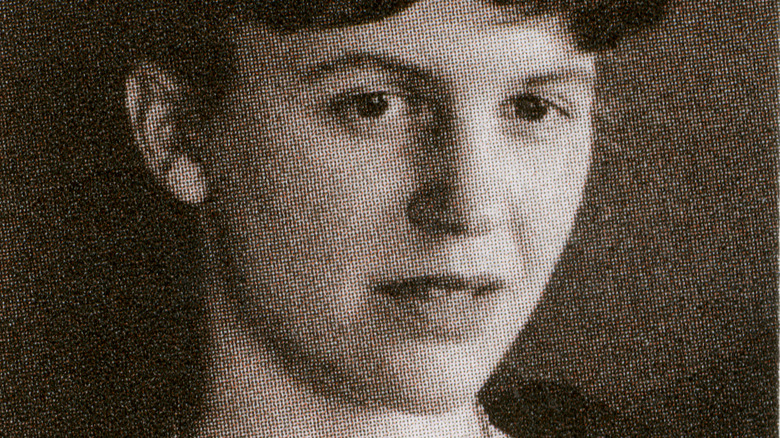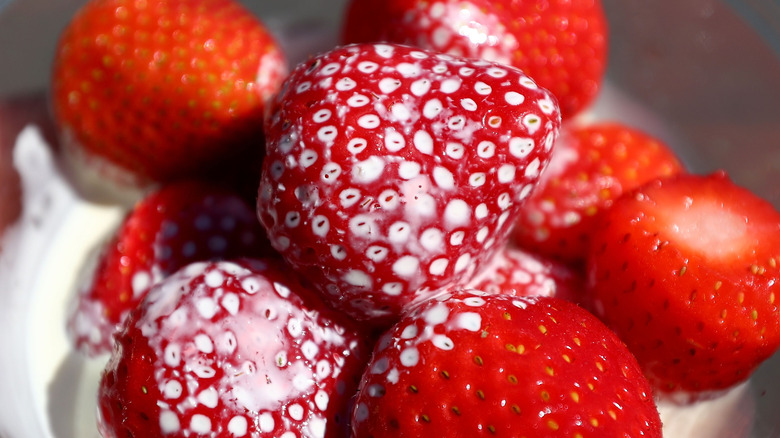Sylvia Plath's Journals Are A Perfect Read For Lovers Of Food And Literature
Sylvia Plath is widely regarded as one of the most influential poets and authors in American history, but a look into her personal journals reveals that she was also one of the nation's most passionate foodies. However, little attention has been given to this fact, perhaps because, as the BBC points out, Plath's legacy in the modern era has become largely defined by her 1963 suicide and the dealings with clinical depression that are reflected by much of her deeply personal work. But focusing solely on this aspect of her life has led to a frustratingly one-dimensional legacy.
Plath was a poetic prodigy; Britannica notes that she wrote her first poem at the age of eight and was only in high school when magazines began buying her poems and short stories. While her best-known work is the semi-autobiographical novel The Bell Jar, she also won a Pulitzer Prize for poetry, and the Academy of American Poets calls attention to her mastery of alliteration and rhyme. Her personal journals, which she began keeping at the age of 11, have also drawn attention, but their contents have relatively little to do with what she wrote, and a lot to do with what she ate.
Plath found joy in food
When the COVID-19 pandemic shut people in their homes for much of 2020, writer Rebecca Brill decided to fill the time by reading Sylvia Plath's diaries, and noticed frequent references to her meals. Brill told Atlas Obscura, "Nearly every journal entry talked about what she'd cooked and eaten," a trend she also noticed in Plath's letters to family and friends.
Many of these personal notes were short and to the point, but still reflect a poetic sensibility, such as a 1959 entry that simply says, "hot tea, hot bath, freshest ever cod-fish with hot potatoes." Other entries include recipes, such as red cabbage, to which Plath liked to add apples and raisins.
Plath wrote of food with joy and enthusiasm, challenging one-sided views of her legacy which tend to define her by depression alone. Eliza Dumais, writing for Lit Hub, points out that on the day Plath wrote 'Lady Lazarus', a poem dealing with suicidal ideation, Plath's journal entry focuses on a lemon pudding cake she made.
It is a delightfully fresh perspective on Plath, and anyone seeking to paint her life as nothing but a cloud of darkness should consider this 1961 journal entry: "We should have nothing to do but write and dream of strawberries and cream."
If you or anyone you know is having suicidal thoughts, please call the National Suicide Prevention Lifeline by dialing 988 or by calling 1-800-273-TALK (8255).

